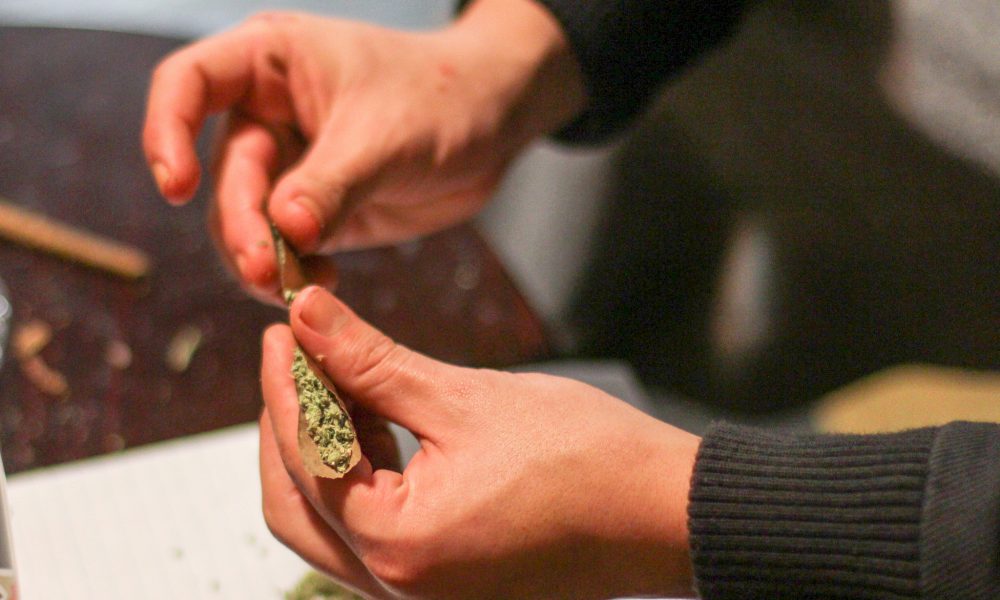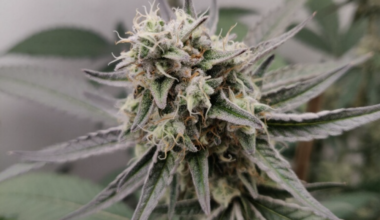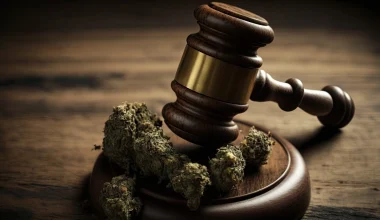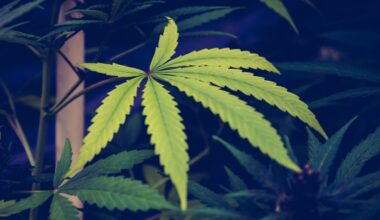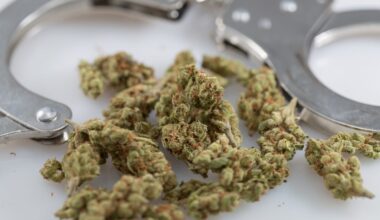Another federal agency is reminding employees that they’re prohibited from using marijuana and warning them about the risks of consuming federally unregulated CBD products.
The U.S. Forest Service (USFS) human resources division posted a notice on Monday that says while cannabis is legal in some form in a majority of states, federal workers “must remain drug-free and refrain from illegal drug use whether on or off duty regardless of state laws.”
“There have been no changes to the panel of drugs contained in the list of Schedule I drugs under the Controlled Substance Act,” USFS said.
As such, the agency will continue to randomly test employees who are reasonably suspected of having used marijuana, and those in “Test Designated Positions” will be regularly tested for THC.
“Any employee having a positive drug test result for marijuana (or any other illegal drug), will be subject to mandatory administrative actions…which includes discipline up to removal for the first finding of illegal drug use,” the notice says.
USFS didn’t say that workers are prohibited from using hemp-derived CBD that was legalized under the 2018 Farm Bill, but it cautioned that the products available in commercial markets across the U.S. are not currently evaluated by the Food and Drug Administration (FDA) and could result in positive drug tests for THC.
“Cannabidiol is an active ingredient in cannabis and is not regulated,” it said. “It can be inaccurately labeled as having no to low levels of Tetrahydrocannabinol, and yet actually contain high levels. If you use CBD, you could test positive for illegal drug use.”
While USFS is making clear that workers can’t use marijuana, it’s also an agency that is frequently required to have employees working in a close capacity to the plant as part of its illicit grow eradication efforts.
The Forest Service has faced criticism over a 2018 report from the U.S. Department of Agriculture (USDA) inspector general, which found that the agency has historically done an inadequate job of cleaning up after cutting down illicit grows.
In any case, drug testing policies have been put the test amid the state-level marijuana legalization movement.
The nation’s largest union representing federal employees recently adopted a resolution in support of marijuana legalization and calling for an end to policies that penalize federal workers who use cannabis responsibly while they’re off the clock in states where it is legal.
House Appropriations Committee leadership recently urged the White House to “continue to review policies and guidelines regarding hiring and firing of individuals who use marijuana in states where that individual’s private use of marijuana is not prohibited under the law of the State” as part of a Financial Services and General Government (FSGG) spending report.
It specifically requests that the executive branch apply drug testing standards with “consistency and fairness.”
—
Marijuana Moment is tracking more than 1,500 cannabis, psychedelics and drug policy bills in state legislatures and Congress this year. Patreon supporters pledging at least $25/month get access to our interactive maps, charts and hearing calendar so they don’t miss any developments.![]()
Learn more about our marijuana bill tracker and become a supporter on Patreon to get access.
—
In June, the Senate Intelligence Committee separately adopted an amendment from Sen. Ron Wyden (D-OR) that would prohibit the federal government from denying people the security clearances they need to work at intelligence agencies simply because they’ve used marijuana.
But in general, federal agencies have been reluctant to loosen cannabis-related employment rules despite state efforts to legalize cannabis for medical and recreational use.
For example, the Substance Abuse and Mental Health Services Administration (SAMHSA) recently proposed a changes to drug testing policies for federal workers that would clarify that having a doctor’s recommendation for medical marijuana or any other Schedule I drug is not a valid excuse for a positive drug test.
Meanwhile, the director of national intelligence (DNI) said late last year that federal employers shouldn’t outright reject security clearance applicants over past use and should use discretion when it comes to those with cannabis investments in their stock portfolios.
FBI updated its hiring policies last year to make it so candidates are only automatically disqualified from joining the agency if they admit to having used marijuana within one year of applying. Previously, prospective employees of the agency could not have used cannabis within the past three years.
The Environment Protection Agency (EPA) also emphasized to its workers that they are prohibited from using marijuana—or directly investing in the industry—no matter the state law or changes in “social norms” around cannabis.
The Department of Transportation (DOT) also took a different approach to its cannabis policy in 2020, stating in a notice that it would not be testing drivers for CBD. However, DOT recently reiterated that the workforce it regulates is prohibited from using marijuana and will continue to be tested for THC, regardless of state cannabis policy.
In a letter sent to Transportation Secretary Pete Buttigieg in May, Rep. Earl Blumenauer (D-OR) argued that DOT’s overall cannabis testing policies are unnecessarily costing people their jobs and contributing to supply chain issues. He urged a review and administrative reform of the guidelines.
Buttigieg, who campaigned on a pro-legalization platform during his 2020 presidential bid and repeatedly condemned the harms of prohibition—going so far as to call for decriminalizing possession of all drugs—has yet to take any administrative steps to modernize DOT marijuana policy since taking the helm of the department.
While DOT will continue to test workers for THC, however, the department did also recently propose a revised drug testing policy.
Commercial drivers who use CBD products are doing so “at their own risk,” a federal agency said in a recently released draft handbook for medical examiners who are responsible for issuing DOT certifications.
While the Biden administration has instituted a policy of granting waivers to certain workers who admit to prior cannabis use, it’s come under fire from advocates following reports that it fired or otherwise punished dozens of staffers who were honest about their history with marijuana.
Then-White House Press Secretary Jen Psaki attempted to minimize the fallout, without much success, and her office released a statement last year stipulating that nobody was fired for “marijuana usage from years ago,” nor has anyone been terminated “due to casual or infrequent use during the prior 12 months.”
Meanwhile, a union representing firefighters has claimed credit for a New York City legal directive ordering government agencies, including the New York City Fire Department (NYFD) and New York Police Department (NYPD), to cease drug testing workers for marijuana since the state enacted legalization.
Last year, the state Department of Labor separately announced in guidance that New York employers are no longer allowed to drug test most workers for marijuana, with limited exceptions. Even prior to the enactment of legalization, New York City officials had established a local ban on pre-employment drug testing for cannabis.
Washington, D.C. Mayor Muriel Bowser (D) signed a bill last month that prohibits most workplaces from firing or otherwise punishing employees for off-duty marijuana use.
In Missouri, the St. Louis County Council approved a bill in March to ban pre-employment and random drug testing for cannabis for most county workers.
Photo courtesy of Martin Alonso.
Medical Disclaimer:
The information provided in these blog posts is intended for general informational and educational purposes only. It is not a substitute for professional medical advice, diagnosis, or treatment. Always seek the advice of your physician or other qualified healthcare provider with any questions you may have regarding a medical condition. The use of any information provided in these blog posts is solely at your own risk. The authors and the website do not recommend or endorse any specific products, treatments, or procedures mentioned. Reliance on any information in these blog posts is solely at your own discretion.
